20 Dec Mattru Hospital: A Renewed Focus in Sierra Leone
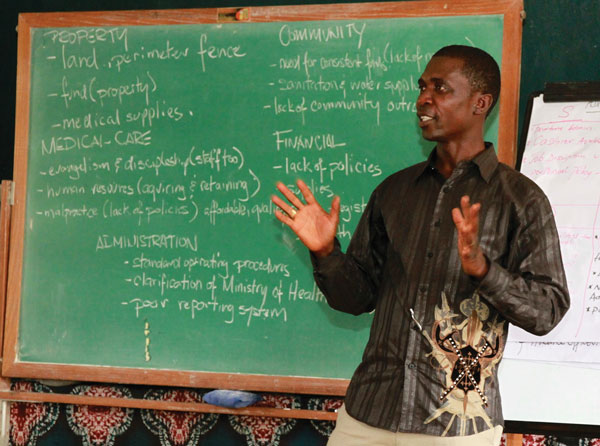
Bishop John Pessima leading a planning session.
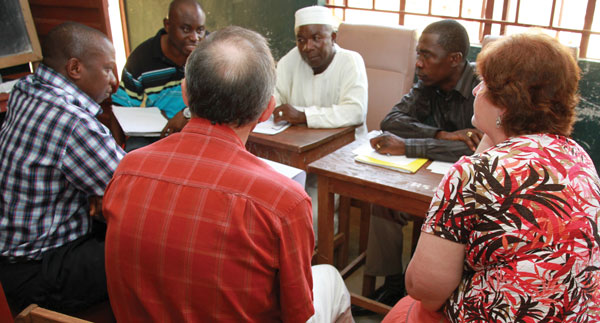
A study group.
Jeff Bleijerveld, Director of Global Ministries
In the years ahead, Mattru Hospital in Sierra Leone will be an important focus of Global Ministries.
Throughout the 1980s and into the early 1990s, dozens of United Brethren missionaries served at Mattru Hospital. The hospital was recognized as one of the best hospitals in all of West Africa. People came from neighboring countries—Ghana, Guinea, Burkina Faso—to be treated at Mattru Hospital.
Then the civil war hit Sierra Leone. All missionaries were evacuated in 1994, and years of rebel warfare left the hospital in shambles and the staff scattered.
In 2001, Doctors Without Borders reopened Mattru Hospital and invested thousands of dollars in equipment, renovations, and personnel. A year later they returned the hospital to Sierra Leone Conference. But Mattru Hospital has struggled ever since.
Mattru is the only hospital in the Bonthe District. There may be clinics, but no surgery, emergency care, early childhood, obstetrics, etc. They want to do these things, but lack the capability.
The Need for a Strategic Plan
Before I went to Sierra Leone in February 2013, Sierra Leone Conference invited me to help them develop a strategic plan for Mattru Hospital. I said I would only be a facilitator; I wouldn’t write the plan for them.
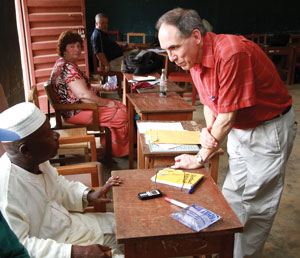
Meeting with the village chief.
I talked to them about some of the people to include around the table, but they went much further. They brought in the paramount chief, regional and national medical directors, and people from non-government organizations (NGOs) who have worked in other West African nations. These folks were all key stakeholders, not necessarily in Mattru Hospital itself, but in the success of medical work in Sierra Leone.
A family practitioner from Auburn, Ind., accompanied me to Sierra Leone. [It is necessary to refer to him anonymously.] His involvement with Mattru Hospital began in 1984 when he spent time there as a medical student. He and his wife later returned as fulltime missionaries.
In November 2012, this couple were volunteering at a hospital in Guinea and decided to spend some time in Sierra Leone. He conducted an assessment with hospital staff and conference leaders, and sent me a 26-page document. That greatly helped get the ball rolling.
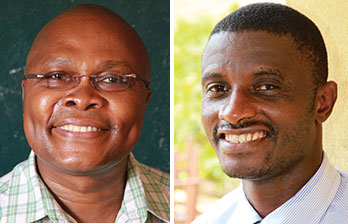
Dr. Dennis Marke (left) and Dr. Martin Salia.
Also participating in those meetings were two Sierra Leonean doctors, Dennis Marke and Martin Salia, who have United Brethren roots and had served at Mattru Hospital. They now work at a hospital in Freetown, but came to Mattru for the planning meetings and made tremendous contributions.
Two Days of Meetings
We broke into groups to focus on issues related to five areas: medical care, finance, administration, community relations, and property. After working for several hours, the groups presented their findings.
I asked the committee to select the three most crucial items from each group. That gave us a list of 15 items. Then Bishop John Pessima appointed a five-person committee to fine-tune the plan, working out specific goals and a timeline. Both Dr. Dennis Marke and Dr. Martin Salia were part of that group.
The Plan: Recruit Missionaries
In our research, we found no other self-sustaining mission hospitals in West Africa. The best model is a hospital in Guinea, but that hospital supplements its national workers with some foreign missionaries and medical staff. One reality is that it’s easier to raise money from North America when North American missionaries are involved.
The strategic plan calls for regular teams of physicians from abroad. It’s not necessary that they be United Brethren doctors. Samaritan’s Purse and other groups regularly send physician teams, and we think we can tap into them. The Wesleyans, who operate a hospital at Kamakwie in northern Sierra Leone, are more than willing to open their contact lists to us.
We’re also looking at recruiting medical staff, a hospital administrator, and a financial director. Those roles could be filled by North Americans or by Sierra Leoneans raising support as international workers.
We’d like to send 3-4 medical teams a year. That would mean a frequent, but not continual, presence of medical doctors.
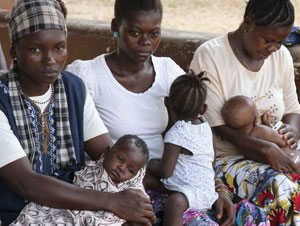
Mothers waiting at the hospital.
The Plan: Improvements
Housing is an issue, too. Harmonie House, the former residence for UB missionary nurses, is a solid structure—four bedrooms, living area, kitchen—but it needs extensive renovations. The roof must be replaced, because termites have eaten up the rafters. We’ve talked about sending work teams to renovate the property to provide housing for visiting physicians.
Another part of the plan is to rebuild the surgical theater. It needs a brand new start; the current facility cannot be upgraded.
We discovered that the US embassy has a $25,000 grant available to hospitals in Sierra Leone for surgical theaters. We began pursuing that before we left, but couldn’t get an appointment because the embassy was closed for President’s Day.
Another priority is to build a wall around the property. This would help solve several problems. First, people are putting up private buildings which encroach onto the hospital property. Second, goats and farm animals graze on the property, creating unsanitary conditions. Third, security is a major problem—equipment disappears regularly.
The Road Ahead
The strategic plan has been developed. Now we need to assemble the pieces.
We need funding just to get Mattru Hospital to the point where African medical personnel would want to be there and would have the tools they need to provide adequate care.
We believe Mattru Hospital meets an important need for the people of Sierra Leone, but it is not currently self-sustainable. And so, the United Brethren people of the US and Canada need to come alongside our brethren in Sierra Leone, so that the ministry of Mattru Hospital can flourish once again.
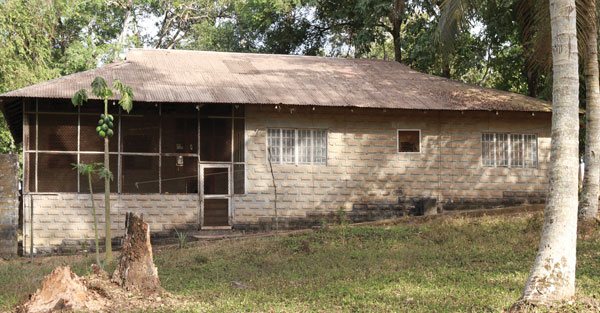
Harmonie House
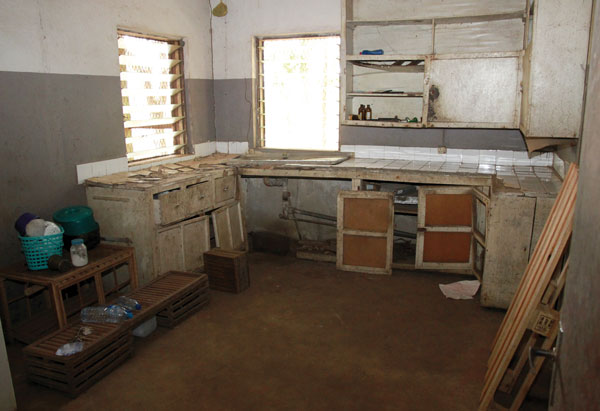
Inside Harmonie House.
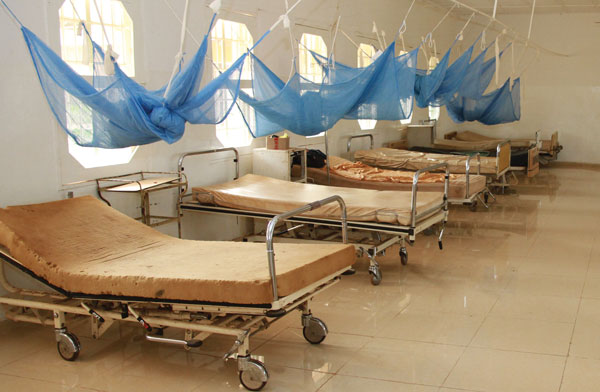
One of the wards.
April 2013

No Comments